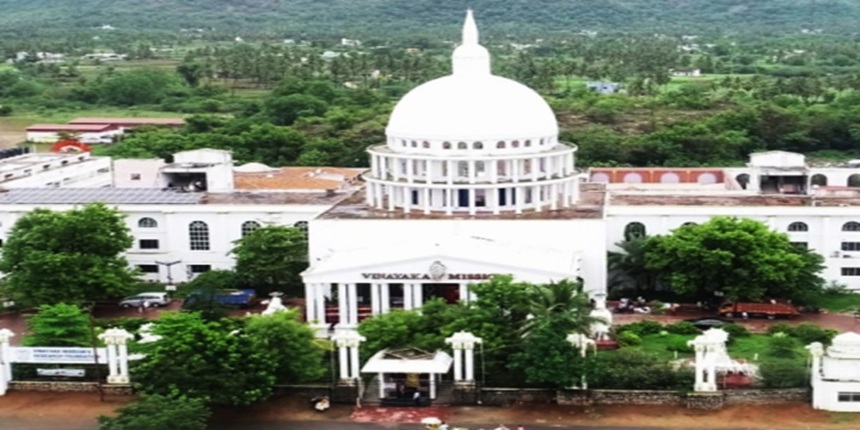VSEP Chennai BSc Economics (Honours with Research) admissions 2024 open; check details here
NEW DELHI: Vinayaka Mission’s School of Economics and Public Policy (VSEP), Chennai has begun the application process for BSc Economics (Honours with Research) in online mode on the official website - vsep.edu.in. Candidates meeting the eligibility criteria need to visit the website and complete the VSEP Chennai BSc Economics (Honours with Research) registration 2024 by submitting the required details and documents.

VSEP BSc Economics (Honours with Research) admissions 2024 direct link - Apply Now
For VSEP Chennai BSc Economics (Honours with Research) admission 2024, students will be shortlisted based on marks obtained in the qualifying examinations, merit-based counselling conducted by the Admission Monitoring Committee (AMC) of VMRF-DU and the eligibility criteria, prescribed by the VMRF-DU from time to time. Before applying for VSEP Chennai BSc Economics (Honours with Research) 2024, applicants must go through the eligibility criteria and other important information to avoid any discrepancies.
VSEP Chennai BSc Economics (Honours with Research) Admissions 2024: Course Fee
Programme Name | VSEP Chennai BSc Economics (Honours with Research) Fee (Tuition Fee) |
Rs. 1,50,000 (1st year fees) Rs. 1,50,000 (2nd year fees) Rs. 1,50,000 (3rd year fees) Rs. 1,50,000 (4th year fees) |
See Also: VSEP Chennai Courses
VSEP BSc Economics (Honours with Research) Applications 2024: Mode of Application
Mode of Application | Online |
VSEP Chennai BSc Economics (Honours with Research) Eligibility Criteria 2024
Programme Name | Eligibility Criteria |
BSc Economics (Honours with Research) | Passed 10+2/H.Sc or its equivalent exam with aggregate marks of 60% for the General Category, 55% for OBC, and 50% for SC/ST/PWD category. |
More about: VSEP Chennai Admissions
VSEP Chennai BSc Economics (Honours with Research) Admissions 2024
Visit the official website of Vinayaka Mission’s School of Economics and Public Policy (VSEP), Chennai.
Meet the VSEP Chennai BSc Economics (Honours with Research) eligibility criteria.
Fill the application form in online mode by paying the application fee.
Admission will be made for B.Sc Economics - Hons with Research Programme based on marks secured in the qualifying exams and merit-based counselling will be conducted by the Admission Monitoring Committee (AMC) of VMRF-DU and the eligibility criteria, prescribed by the VMRF-DU from time to time.
At last, admission will be confirmed after verification of documents and fee payment.
VSEP Chennai: Contact Details
Vinayaka Mission’s Chennai Campus (VSEP, Chennai), Vinayaka Nagar, Rajiv Gandhi Salai (Old Mahabalipuram Road), Paiyanoor, Chennai
Phone No: 91 74183 14443
E-mail: connect@vsep.edu.in
